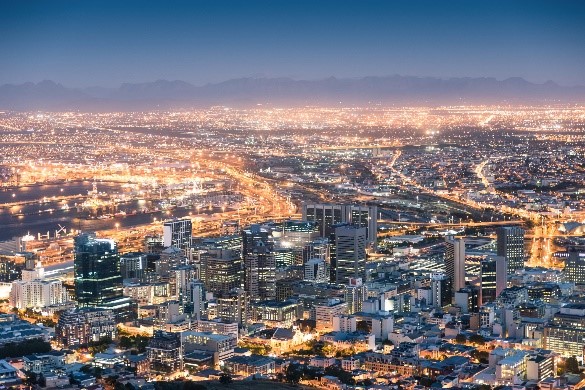Investment into infrastructure and development, particularly rurally, remains critical to the reset of South African infrastructure, said United Manganese of Kalahari (UMK) chief executive Malcolm Curror. Industry must place this objective firmly in its crosshairs and actively seek out public private partnerships with government to accelerate economic access, he said.
Curror said that industry organisations and other civil role players must place infrastructure development at the top of its sectoral agendas. “The time to act is now, said Curror.
“Infrastructure development is central to job creation, skills training, and improving the quality of life in underserved areas,” Curror said. “Contributing or at times leading infrastructure development projects easily align with corporate ESG (Environmental, Social, Governance) principles and companies, from mining through to large scale industrial producers, can aid in ensuring that actions today build a sustainable, equitable future for both our business and the communities we serve,” he noted.
Opportunity exists to partner with authorities in improving infrastructure that tie back to access to water, healthcare, renewable energy, skills development and roads, rurally and in peri-urban areas. UMK has actively sought out key projects like water and sanitation and road infrastructure projects that directly benefit communities in its operational area in the Joe Morolong Municipal district in the Northern Cape.
“We have seen that partnering with local government on projects that align with national intent but at grassroots level, from ESG through to greater development achievements; but beyond that it delivers access to essential services and infrastructure that, in turn, stimulate economic participation and growth on a local level,” Curror said. “The time to actively seek out this kind of partnerships is now, because South Africa is on the cusp of a potential leap in economic growth.”
Curror said that investment into local initiatives can also aid to hedge against skills shortages through to the wellness of employees and their families. “Investment into infrastructure can be self-serving as it may be an aspect of corporate social investment. “he said. Better roads mean improved transportation of goods, access to better water and sanitation directly impacts members of a company’s employee body. “Teaching transportable skills creates know-how for critical trades that we use and that are equally transportable to other sectors in industry,” he said.
The same applies to sustainable energy and the development of small enterprise within local communities. “We have narrowed our focus to uplifting and developing the areas where we operate,” said Curror. “Instead of flagship projects that make headlines, sustainable investment into infrastructure, local businesses and projects that make a sustainable impact is a shift that industry must make,” he said. “This creates an outward and critical ripple-effect that can be sustained instead of toe dipping projects to check boxes.”
Curror noted that industry’s role also goes beyond simple financial investment. “We have the responsibility to be active participants in shaping the future. By leading and not just following, we can influence the trajectory of regional economic development, and eventually this will spiral outward,” he said. “In essence, industry can be the catalyst that turns potential into reality, driving inclusive growth for generations to come.”



